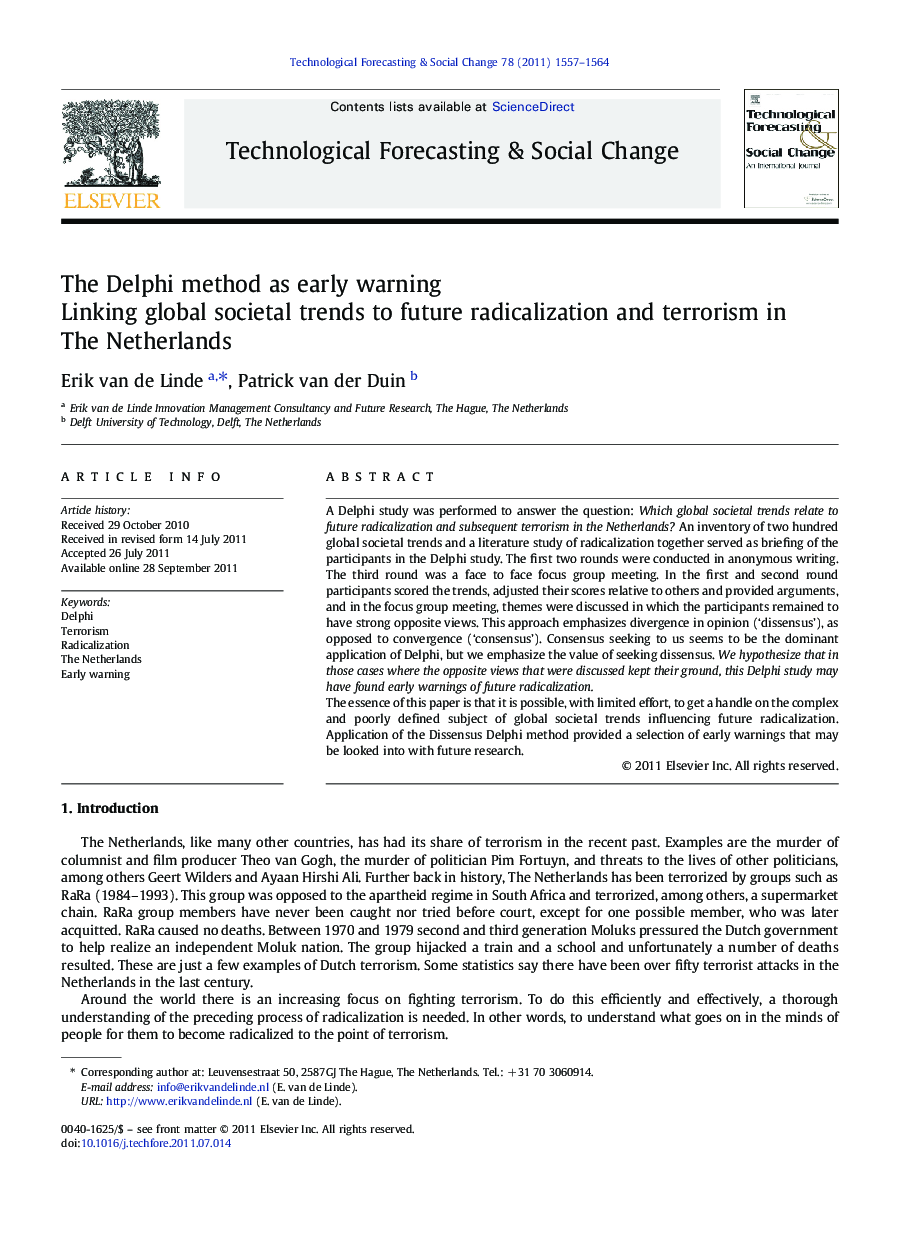| Article ID | Journal | Published Year | Pages | File Type |
|---|---|---|---|---|
| 896914 | Technological Forecasting and Social Change | 2011 | 8 Pages |
A Delphi study was performed to answer the question: Which global societal trends relate to future radicalization and subsequent terrorism in the Netherlands? An inventory of two hundred global societal trends and a literature study of radicalization together served as briefing of the participants in the Delphi study. The first two rounds were conducted in anonymous writing. The third round was a face to face focus group meeting. In the first and second round participants scored the trends, adjusted their scores relative to others and provided arguments, and in the focus group meeting, themes were discussed in which the participants remained to have strong opposite views. This approach emphasizes divergence in opinion (‘dissensus’), as opposed to convergence (‘consensus’). Consensus seeking to us seems to be the dominant application of Delphi, but we emphasize the value of seeking dissensus. We hypothesize that in those cases where the opposite views that were discussed kept their ground, this Delphi study may have found early warnings of future radicalization.The essence of this paper is that it is possible, with limited effort, to get a handle on the complex and poorly defined subject of global societal trends influencing future radicalization. Application of the Dissensus Delphi method provided a selection of early warnings that may be looked into with future research.
